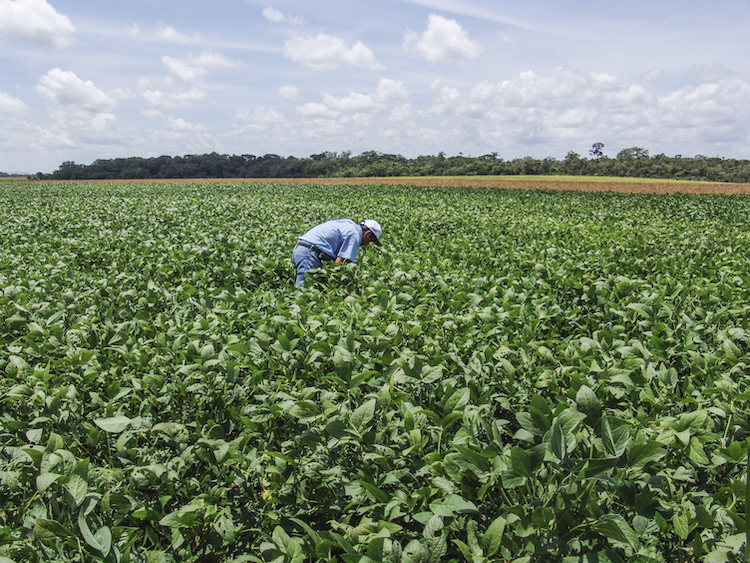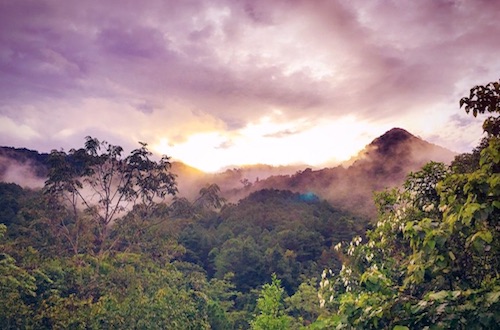EII’s Amazon experts weigh in on Biden’s climate actions
U.S. President Joe Biden on Wednesday signed a raft of executive orders aimed at addressing the “existential threat of climate change.” The orders call for the appointment of a new climate czar, centering climate change in foreign policy and reestablishing science as the basis of policymaking.
Also included was a reference to protecting the Amazon rainforest, key to slowing global warming and preventing the worst outcomes of climate change.
“The treasury secretary shall,” the statement reads, “develop, in collaboration with the Secretary of State, the Administrator of USAID, and the Chief Executive Officer of the DFC, a plan for promoting the protection of the Amazon rainforest and other critical ecosystems that serve as global carbon sinks, including through market-based mechanisms.”
We asked our experts to weigh in on the US’s dramatic shift on climate policy, to see how President Biden’s moves are being received in Amazon regions and what it will take to deliver on the promise to slow and reverse deforestation.
Most greeted the news with cautious optimism, emphasizing the need for a focus on sustainable development initiatives as opposed to a purely punitive approach to forest conservation.
“The US and Brazil have been and will remain competitors in the agricultural space,” noted EII Senior Policy Analyst João Shimada, who is based in Cuiaba, in the Brazilian state of Mato Grosso, Brazil’s leading agricultural state and a pioneer in forest protection. Despite the shift in policy from Washington, he said, that fundamental dynamic remains constant and will shape Brazil’s response.
“For farmers here, the fear is that the US will use environmental issues to gain leverage in trade with other nations,” explained Shimada.
Brazil is home to the world’s largest expanse of Amazon rainforest. It is also one of the world’s leading commodity exporters, helping feed a growing and increasingly hungry global population. Balancing these two demands—increasing agricultural output while protecting natural resources—remains one of Brazil’s and the world’s foremost challenges. And with commodity prices rising, the opportunity cost to Brazil’s farmers who forgo agricultural expansion to keep forests standing grows.

A majority of forested land in Brazil, outside of protected and Indigenous territories, is on farms, meaning farmer support for conservation measures is key. Overt pressure from Washington and the EU, Shimada warns, could alienate farmers and drive Brazil closer to China, a key global market, while strengthening the hand of Brazilian farmers who favor fewer environmental regulations at home.
To be effective, said Shimada, Biden will need to find a way to deliver incentives to farmers to maintain forest cover. “Producers no longer have faith in commitments, agreements, potentials… none of this pays the bills. They want to see something concrete.”
One possible opening for the Biden team is supporting full implementation of Brazil’s Forest Code, one of the world’s most stringent environmental regulatory policies pertaining to agriculture. The Forest Code requires Amazon producers to maintain 80% forest cover on their properties. It has yet to be fully implemented eight years after its approval. Doing so would make it easier to identify and reward forest conserving farmers.
According to Gustavo Suarez de Freitas, EII’s country coordinator for Peru, for the US to be effective it should focus its efforts on supporting the creation of a forest sector development plan for the Peruvian Amazon, the second largest expanse of Amazon rainforest after Brazil.
“Tropical forest conservation is a key element of the Free Trade Agreement between the United States and Peru,” noted Suarez de Freitas, “but the results have not been as significant as hoped for.” That is partly due to the fact that much of the focus has been on prevention of illegal activities like logging or mining, he explained, with little to no emphasis on supporting legal and sustainable use of forests.
To slow forest loss in Peru, much of it driven by smallholder farmers, Suarez de Freitas says the US will need to help Peru’s government develop a vision of sustainable development for the region.
“Support Peruvian authorities to design and implement a forest sector development plan, which includes positive incentives for sustainable forest management, plantations to recover degraded lands, and agroforestry and silvopastoral systems, as well as early warning systems to control and fight forest fires,” he said. “This would be of great help.”

EII’s Peru team has been working with subnational governments who together manage more than 80% of the Peruvian Amazon on the development and implementation of low-emission rural development (LED-R) plans for their regions.
"Now that US is back in the Paris Agreement, there is an important opportunity to reduce deforestation but to achieve results in the Peruvian Amazon we need to remember these words: positive incentives for positive transformation," said EII Senior Policy Analyst Patricia Luna, who is based in Lima. "Designing economic and non-economic incentives, strengthening partnerships for sustainable agricultural, improving transparency and reducing gender inequities should be part of future cooperation between both countries. Otherwise, we will lose this opportunity."
In Colombia the picture is still more complicated by the reemergence of paramilitary forces that disbanded after the Peace Agreement signed in 2016, says EII Country Coordinator for Colombia, María Adelaida Fernández.
“Dissident groups are growing and establishing their presence again, specifically in the Amazon. They are starting to pressure farmers to grow coca again,” she explained, referring to the crop used to produce cocaine, among the key drivers of forest loss in Colombia.
The situation Fernandez described was one of a two-front battle to push back against paramilitary gangs while at the same time encouraging the growth of a legal forest sector. “You have to give the people in these areas real and legal opportunities for them to be able to leave illegal crops behind and it is not easy,” she noted, “especially when these rebel groups are pressuring them and when the state is nowhere close to defending them.”
Tropical forest conservation has long been on Biden’s radar, going back to his support for the 1998 Tropical Forest Conservation Act. During one of last year’s presidential debates Biden proposed creating a $20 billion fund for Amazon conservation.
A United Nations poll of global attitudes towards climate change meanwhile found an overwhelming majority of people support efforts to address the issue, with forest conservation being among the top strategies identified by respondents.
Wednesday’s actions by the Biden White House are an encouraging sign that the new administration is serious about addressing tropical deforestation, though for now many in tropical forest regions are taking a wait and see approach.
“Producers in Brazil are certain that the environment will be the central issue,” said Shimada. “They are now waiting to see which way the wind blows.”
